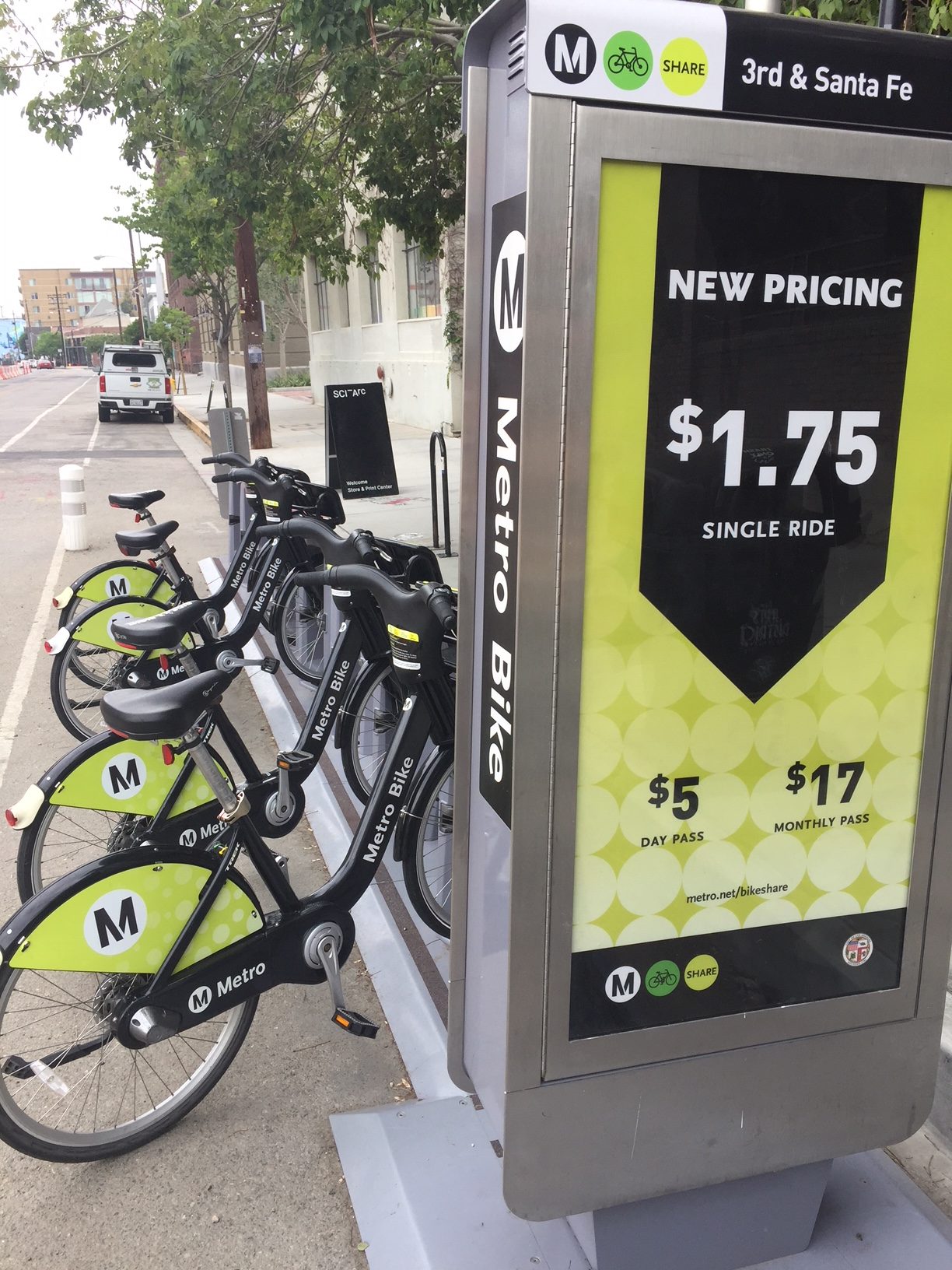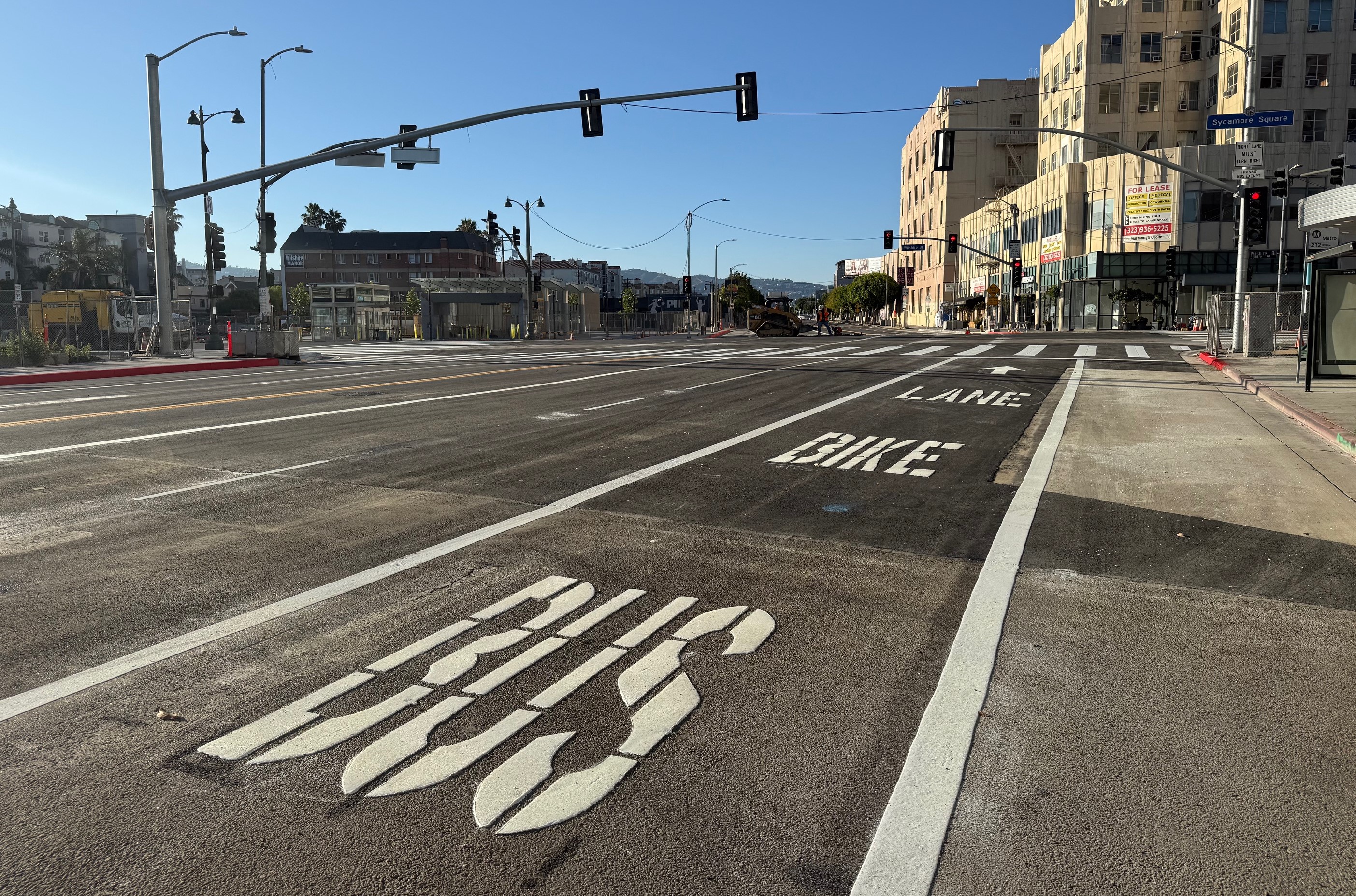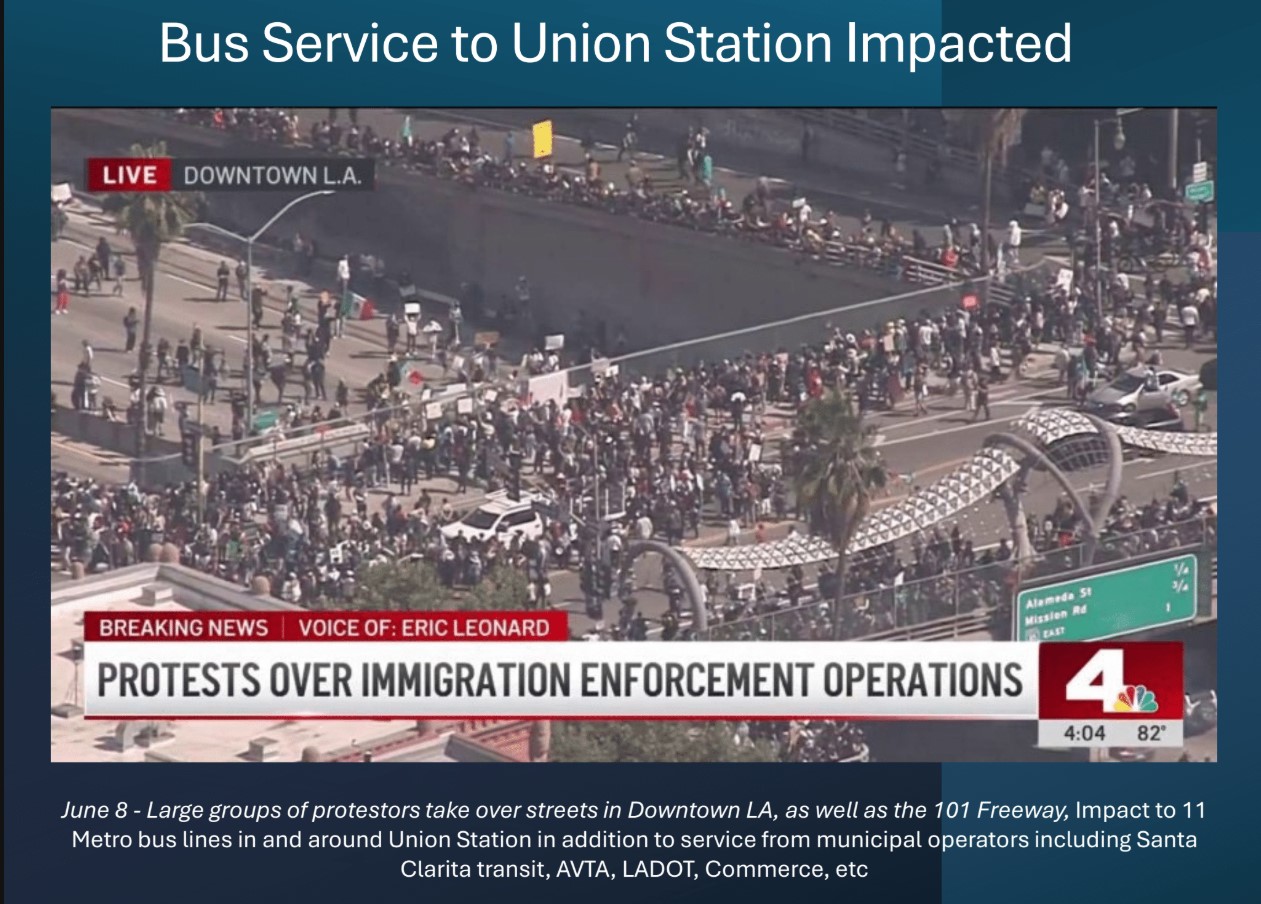Earlier this week, Metro canceled a controversial procurement for its bike-share operations. Philadelphia-based Bicycle Transit Systems (BTS) is the current contractor until their contract runs out on August 30. It's likely that the BTS contract will be extended, but Metro isn't commenting on the matter.
In January, Metro staff recommended contracting with ride-hail company Lyft, a car corporation with a reputation of being anti-labor, environmentally unfriendly, and, at best, lukewarm to its competition: transit and bicycling. Really, Metro?
After a mass campaign supporting BTS and opposing Lyft, the January decision was put on hold. The campaign continued to gain steam, and Metro didn't saying anything for two months.
Then on Tuesday, Metro sent a one-page letter to BTS, and presumably other bidders, stating that the agency was canceling the solicitation, and "intends to revise the scope of services and issue a new competitive solicitation."
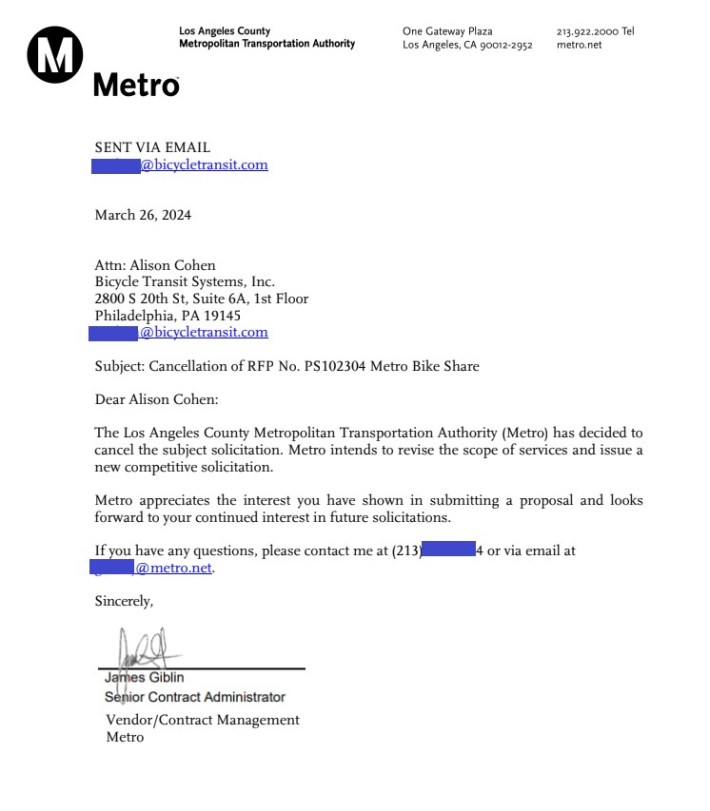
There's very little to go on here. Metro isn't offering any reasons for the canceled process. They do occasionally cancel procurements when all the bids come in too high, but it seems unusual for Metro to cancel the process when they received several valid responsive bids.
The story here has been hard for me to cover.
A Lyft representative pitched me a pie-in-the-sky vision of a massively expanded bike-share system, supported by advertising. BTS representatives presented to me lots of documentation that pointed to an unfair selection process that gave the appearance that Metro hadn't really done an apples-to-apples comparison between BTS and Lyft.
I'm a bike guy. I don't claim to be well-versed in contract procurement or labor issues. I can tell that BTS has bikes at the core of what they do, and Lyft doesn't. The contracting process didn't look great, but I didn't dig deep enough to confirm Metro malfeasance.
One contrast that has been striking to me is the difference in the way Metro treats bike-share compared to MicroTransit.
Metro pays for Metro Micro, with no local match required from local jurisdictions. Metro spends $31+ million per year for ~2,000 Metro Micro trips per day, each trip subsidized ~$40+ per trip. (I have made no secret that I find the Metro Micro pilot utterly wasteful, anti-equity, and anti-environment.)
Part of the great financial lengths that Metro has gone to is to ensure its Metro Micro employees are well-paid staff (which they should be). Metro pats itself on the back, contrasts its practice to those ride-hail companies who treat their workers badly.
All this on a doomed unsustainable pilot.
Compare that to Metro Bike Share, launched in 2016 and unionized in 2021. Metro has been slow to expand the system because it demands local cities match costs.
With the Lyft proposal, Metro is showing it's not valuing the local unionized bike-share workers it already has.
And bikes don't pollute; microtransit vans do.
And workers matter, whether they're driving or bicycling.
(One more irritating but minor contrast that bugs me: due to an early labor dispute that the agency never resolved, Metro doesn't site Metro Bike Share docks at actual Metro rail stations. Bike-share riders often are forced to walk a few blocks to connect from trains to bikes. Meanwhile Metro Micro has no trouble picking up and dropping off passengers directly at Metro stations.)
Bike-share ridership is trending upward, often limited by a lack of walkability and bikeability. With the passage of Measure HLA, L.A. City will finally be implementing its plan for streets safer to walk and bike.
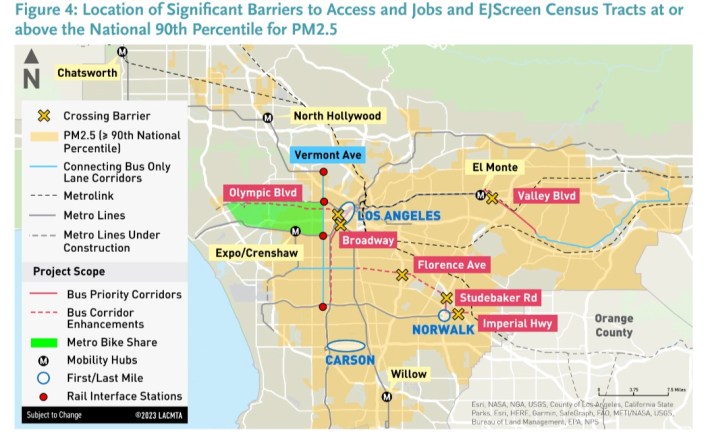
The Metro Bike Share system recently got a big boost in Metro's recent Reconnecting Communities (RCN) grant, which will install 60 new bike-share stations connecting the downtown and westside service areas. (Metro's RCN grant application announced that Metro has already received a "SCAG Regional Early Action Planning grant award, which will add 90 bike-share stations and build on the proposed investments at the Expo/Crenshaw... and Vermont enhanced bus/rail stations.")
So, Metro is expanding bike-share, hopefully with a trustworthy partner in BTS.
I am encouraged by the important grassroots victory that L.A. progressives, labor, bicyclists, and others managed this week. It's a huge win that should be celebrated.
Unfortunately, I don't have a lot of confidence that Metro will really take the steps necessary to make Metro Bike Share thrive. It took a tremendous organizing effort to basically just temporarily pause a process that looked hell-bent on a harmful system takeover. A similar procurement could rear its ugly head again a few months from now. It will take continued mobilization and advocacy to positively expand the bike-share system to make it a truly integral part of L.A. transportation.
